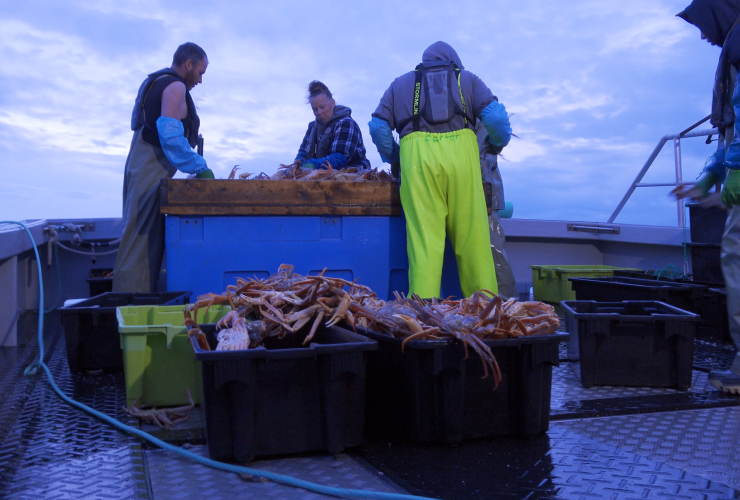Looks like Google will stick with Canada (phew). I’m breathing a cautious sigh of relief. It’s complicated. Google’s staying, that’s good. But what the deal it’s reached with Canada means in terms of new resources for journalism organizations remains to be seen. I’m hoping for the best and preparing for the worst. The best would be for the funds to be distributed fairly across journalism, job by journalism job. The worst would be everything goes to Postmedia and the CBC.
A quick history
If you’re a regular reader of Canada's National Observer, you’ll remember Canada passed the Online News Act last June to “ensure that platforms compensate news businesses fairly.”
Meta responded by blocking Canadian news from all its platforms, while Google threatened to do the same when the law came into effect on Dec. 19. The Meta ban has been a blow, but Google blocking our news would have been a much bigger blow. For some publishers, it might have been a death blow. But today an email appeared in my inbox. Kent Walker, president of global affairs at Google and Alphabet, announced an agreement was close with the Canadian government and that Google would continue to share Canadian news.
CTV News was reporting moments later that “sources said” Google would start making $100 million in annual payments to news companies. I guess that means when the details are worked out, and that will be another challenging negotiation between Google and news organizations.
The new Canadian legislation was originally designed to divert roughly $300 million a year, between Meta and Google, into supporting journalism. Note that in 2021, Google and Facebook extracted almost $10 billion in ad revenue from Canada, according to the Canadian Media Concentration Research Project. So, as Sandy Garossino wrote last June: “It’s not like they’re strapped for cash. In 2022, they generated combined global earnings of some US$400 billion. That’s more than half a trillion in Canadian dollars, thank you very much, in one year.”
The government rightly asked for more, but no surprise, we’ve been negotiated down. The prospect of Google going dark on Canadian news here was real and alarming for so many reasons I can’t cover them here. But I’ve written about them here and here. Moreover, it’s $100 million the journalism industry didn’t have before. Definitely, this agreement is for the good. The public good.
The right thing to do
This is a win for democracy.
A lot of people weren’t too sure Canadian Heritage had done the right thing pushing the Online News Act forward. But I supported it and hoped for a good outcome.
The monopolization of ad dollars by tech giants has gutted journalism around the world. Australia put its foot down first and demanded Meta and Google compensate publishers for their longtime free use of news. After threatening to leave Australia, both companies relented. They worked out deals to pay publishers for journalism Down Under. Then, Canada put its hand up and both Meta and Google dug in their heels. Our columnist Sandy called it a “proxy battle.”
“A very similar bill, the California Journalism Preservation Act, is making its progress toward passage in that state with bipartisan support. It’s facing similar threats, no doubt because legislatures everywhere will do the same. Maybe they were worried that if they gave in here, America would be next. Then, the next country, and the next.”
It’s true other countries will want the Big Tech platforms to compensate them as well. With their billions in wealth, Google is very capable of doing this and must be the best global citizen its finances will allow. So much depends on it.
I, for one, don’t want to live in a world without access to journalism that holds the powerful to account, that exposes corruption and highlights substantial solutions.
Google’s success put the survival of every form of public service journalism at risk, locally, nationally and internationally. Now, as we work out what’s next and who gets how much from the $100-million pie, Canada must ensure the deals favour all news in the public interest. Of course, this includes journalism that adheres to accepted standards of ethics and transparency, accuracy and accountability. All local, national and international news made in Canada must benefit.
As details are hammered out, I do wonder if CBC and Postmedia will monopolize the bulk of the funds, with Torstar scraping up most of the remainder. Or will the money be distributed on the basis of jobs, like journalism tax credits? Who will negotiate deals and who will be left out?
This all depends on negotiations that are likely to start early next year between Google and journalism organizations, such as Press Forward and News Media Canada.
Meanwhile, it is sad Meta has walked away from negotiations with Canada. Although we can hope they come back, I’m not counting on it. For now, as journalists, we have to assume our work will no longer be seen on Facebook or Instagram, and Canadians will continue to hear Meta isn’t publishing Canadian news because of Bill C-18. That's what appears likely to happen.
But then again, this is the news business. The one thing I can absolutely count on is that I never know what will happen next.






Comments